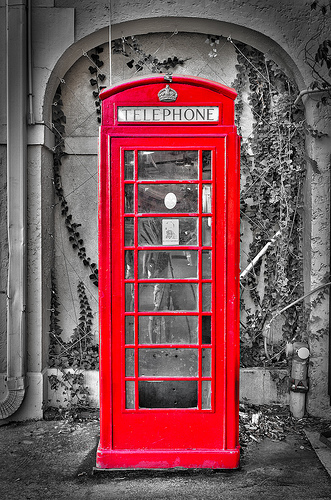First, breathe.
It’s not easy being edited. When you first view your work with an editor’s changes/comments/criticisms, there will be a moment when your heart freezes, and then it will start to burn. This is normal. Do not respond.
Throughout the day, you will compose imaginary emails and engage in silent conversations where you defend your art against the insult of Track Changes. Because obviously this editor just doesn’t get you. You meant to be evasive in paragraph two; you wanted to sound ironic in your closing phrase.
Go ahead and rant silently. Your children may stare in confusion as you mutter and burst into occasional mirthless laughter, your spouse may disappear into the bathroom. They know you’re a writer, that you’re a little strange sometimes. They’ll forgive you.
As the evening goes on, you’ll whittle down your editor’s suggestions to the ones that bothered you most; they’ll play over and over again and the thought of implementing them will make you feel like crying. Pay attention. These are the changes you have to make.
The others, the ones that don’t hurt or merely sting, will categorize themselves:
- Confirmed—I knew that sentence didn’t feel right.
- Enlightened—I didn’t realize this wasn’t clear, but I see the problem.
- Embarrassed—Did I actually write that?
- Opposed—I see what she’s saying, but this phrase is important.
It may take a few days to get to this point. Wait until you’re there. If you have to, send your editor a polite email explaining that you’re reviewing her comments and working through them. She’ll understand.
When you can think of her with gratitude (she did save you from using the word “just” three times in one page) and remember that she wants your work to be its absolute best (it is also a reflection of her, after all), then you’re ready to respond.
While you’re drafting your reply, don’t be surprised to realize that out of the dozen changes you thought you couldn’t live with, there are now only two.
And when she answers you, don’t be surprised if she says, “I can live with that.”
What’s your experience working with editors? How long do you wait to respond?














This is wonderful advice. A keen insight into just about every onslaught you will encounter in life. Whether it be a boss’s evaluation, a family member’s unsolicited opinion, a “meant to be caustic and incite” rant from a non-friend or perhaps a debate (aka argument) with a spouse. My years have taught me to “sleep on it” before I crank out a diatribe. I don’t always manage to do that, but it is my goal. Well done, Elizabeth.
Thanks, Oma. I love your replies; you are so good at taking a subject and applying it in a way that anyone can relate to. And I understand why you’ve often been asked to write a book–you have great insight and a way with words: “a family member’s unsolicited opinion” LOL 🙂
Loved this! So true and so well put. I find that all criticism takes time to absorb, but how much depends on what it is and what mood it finds me in. Initial reactions tend to be far more emotional than rational and waiting to respond in any case can redress that balance to everyone’s benefit.
Thanks, Lauren! You’re right, the time needed to process criticism depends on the criticism and our mood at the time. I’m sure I’ve had strong reactions to perfectly reasonable suggestions because I was having a tough day. Lucky for me I never acted on those emotions; I’d have probably burned a few bridges!